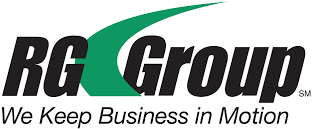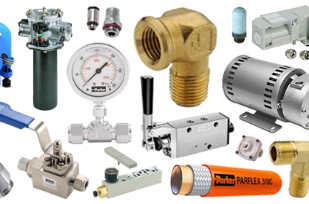With a New Year around the corner, many people reflect on their past year and consider how they can better themselves in the New Year. It is often why gyms are packed in the month of January. Unfortunately, as February roles around, the gym crowd thins out until March, when mostly only the year-round regulars are left. Don’t feel too bad if I just described you; we are all guilty of making grandiose resolutions, followed by the eventual fallback to previous habits. Perhaps this year, instead of committing to the gym, you can commit to investing in your personal development.
An Individual Development Plan (IDP) is a great tool for investing in your personal development. Some people use IDPs for career progression, but others use IDPs to grow within their current role. At RG Group, we encourage using IDPs for both purposes. To provide our customers with “Trusted Expertise”, we need employees that are dedicated to continuous learning. Although IDPs can be a great tool, writing IDPs that are effective and following through to completion of objectives is challenging. Luckily, I have some tips to help you write a great IDP, stay on track and follow-through on this resolution!
There are some important first steps to take so that you can ensure you are focusing on the right areas for development. Self-awareness is key, so much of the process includes gathering feedback from others.
- Have a conversation with your manager that discusses your strengths, weaknesses and career goals within the next 12 months (or longer term). I use this format to guide the conversation:

- Solicit feedback from peers, direct reports, customers, etc. 360 surveys are an option to formally gather useful feedback to identify areas of opportunity. This may result in some tough feedback that may even surprise you; you may not agree with all of the results, but it doesn’t mean the feedback doesn’t matter or isn’t true. Reflect on the results and consider how they may be impacting your ability to influence others and achieve your desired results.
- Review results from personality and behavior assessments. We are starting to use a self-development tool through The McQuaig Institute. This tools allows employees to see strengths and opportunities based on their natural patterns of behavior to guide development of action items.
- Identify 3-5 competencies to focus on in your IDP. This is where it can get tricky. Often I see people try to work on too much at one time. They will read a bunch of books or go to a handful of classes and check the box for completion; this type of development misses the most critical aspect… applying what you are learning. With this in mind, I encourage people to target development activities that are 10% Learning Event (examples: reading a book or taking a class); 20% Learning from Others (examples: shadowing, mentoring feedback); and 70% Learn by Doing (examples: take on a project). Here is an example using our template:

- Choose a great mentor. Your mentor should give you tough feedback. If he/she always tell you that you did a great job and can’t provide you with suggestions on improving, he/she is not the right mentor for you. This person should challenge and inspire you to be better. You may have someone you work with on as a subject matter expert in a competency (such as in the example above under “learn from others”) and another person that is your overall development mentor.
- Stick with it! Schedule reoccurring times on your calendar to update your IDP and meet with your mentor; similar to having a gym buddy, it is helpful to have a mentor that holds you accountable with set meeting times. The mentor meetings should not be casual chat sessions. Come prepared with an agenda, clear objectives and conclude with action items for the next session.
- Own it! Ultimately, you own your career and your development. Find the training opportunities, ask for support and resources, solicit feedback, and be open to the feedback you receive. Put in the extra time and effort.
I hope you found the above tips helpful. Remember, IDPs are a constant work-in-progress; you never really complete your development because there is always room for improvement.
Questions? Comments? Message me on LinkedIn!





